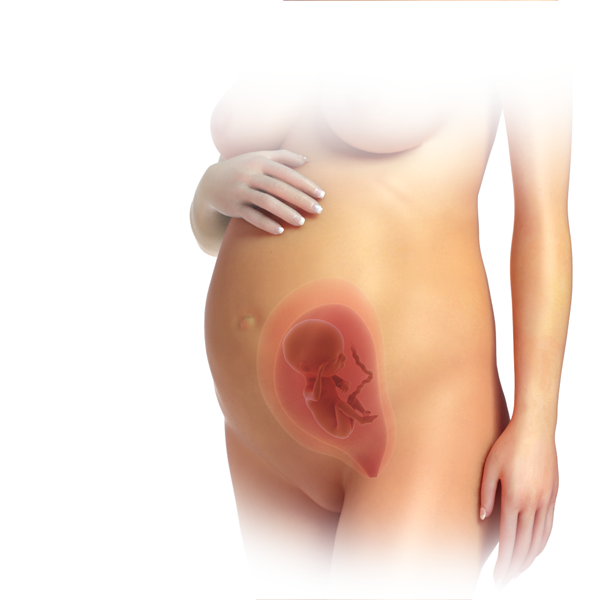Week 21: Time to think about taking care of your leg circulation, especially if you stand for most of the day. Good support stockings can help.

-
Oxytocin is the hormone that makes your uterus contract during labor. Oxytocin is also released during sex, orgasm, breastfeeding and sharing a meal. Oxytocin is what makes you feel in love. It reduces stress, enhances nutrient absorption and conserves energy by making us feel sleepy.
-
Beta-endorphins are your natural opiates and are released during labor when you feel pain and stress. High levels of endorphins cause feelings of pleasure and euphoria. In labor, a woman's beta-endorphins equal that of male endurance athletes during maximal exercise on a treadmill.
Ecstatic Birth
-
If you have a job where you are on your feet all day, it may make sense to begin wearing support stockings to help prevent varicose veins.
-
Prolactin is the hormone that helps make breastmilk. It's also called the parenting hormone. Did you know that both mothers and father's Prolactin levels increase when they hear their baby cry?
Ecstatic Birth
-
85% of all babies are born between 39 - 41 weeks.
-
Take care of yourself during pregnancy so you begin labor in the best possible health. Exercise in moderation and eat well. Seek prenatal care to help you detect and manage any health problems that may arise.
March of Dimes
-
Some signs that let you know labor is approaching are: Soft bowel movements or diarrhea, nausea, backache, low abdominal or menstrual like cramps, bloody show or leaking amniotic fluid. If you see these signs before 37 weeks, call your care provider right away to prevent premature labor.
Pregnancy, Childbirth and the Newborn
BirthWatch Recommends:
Heart and Hands: A Midwife's Guide to Pregnancy and Birth
This is a really cool book for understanding how a homebirth midwife works. It's a little technical but each chapter has a special section for parents to help understand the choices and information detailed in that chapter.
